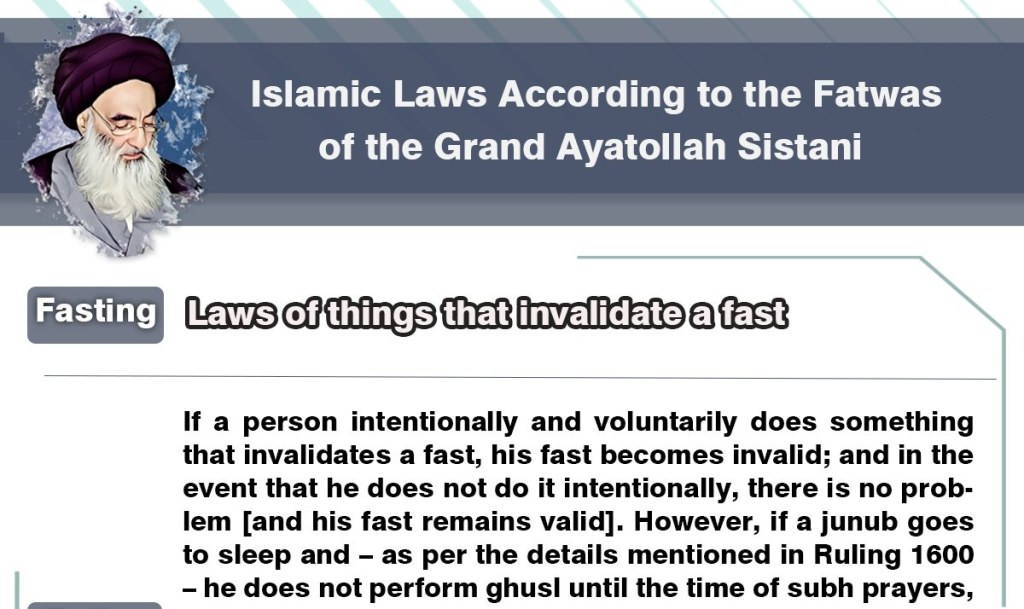Do Shias Fast In Ramadan? Discover The Truth And Join The Discussion Now!
Do Shias Fast in Ramadan?
Introduction
Assalamu’alaikum, Ramadhan enthusiasts! In this article, we will explore the topic of whether Shias fast in Ramadan. As you may know, Ramadan is a holy month for Muslims worldwide, marked by fasting from dawn to sunset. However, there are variations in the way different sects within Islam observe this sacred month. Let’s delve into the practices of Shias and their approach to fasting during Ramadan.
2 Picture Gallery: Do Shias Fast In Ramadan? Discover The Truth And Join The Discussion Now!


Before we begin, it is important to note that this article aims to provide factual information and promote understanding among different sects of Islam. It is essential to respect and appreciate the diversity within the Muslim community.
What is Shia Islam?

Image Source: shafaqna.com
Shia Islam is one of the two major branches of Islam, the other being Sunni Islam. Shias represent a significant minority within the Muslim community, with followers mainly concentrated in Iran, Iraq, Bahrain, and Azerbaijan. They have distinct beliefs, practices, and interpretations of Islamic teachings.
Shias hold a deep reverence for the Ahl al-Bayt, the family of the Prophet Muhammad (peace be upon him), and believe in the concept of Imamate, which asserts that leadership of the Muslim community should be vested in divinely appointed Imams. These beliefs shape their religious practices, including the observance of Ramadan.
Do Shias Fast in Ramadan?

Image Source: vox-cdn.com
Yes, Shias do fast in Ramadan. However, their approach to fasting differs slightly from that of Sunnis. While both sects abstain from food, drink, and other physical needs during daylight hours, Shias also observe additional religious rites during this holy month.
Shias typically begin and end their fasts at slightly different times than Sunnis. They follow a timetable based on the concept of Imsak, which refers to the recommended time of ceasing eating and drinking before the Fajr prayer. This difference stems from variations in the calculation of prayer times and the respective schools of jurisprudence followed by Shias and Sunnis.
Another notable difference is the practice of Mustahabb Fasting among Shias. In addition to the obligatory fasts, Shias also engage in recommended or highly recommended fasts during Ramadan. These voluntary fasts are believed to bring additional spiritual rewards and are observed on specific days, such as the 13th, 14th, and 15th of each lunar month.
When Do Shias Observe Ramadan?
Shias, like Sunnis, observe Ramadan based on the lunar calendar. The precise timing of Ramadan may vary slightly from year to year and is determined by the sighting of the new moon. The start and end dates of Ramadan are typically announced by religious authorities in each respective Shia community.
The sighting of the new moon, known as Hilal, marks the beginning of the month of Ramadan. Shias, like other Muslims, eagerly await the sighting and celebrate the onset of this sacred month with great joy and anticipation.
Where Do Shias Observe Ramadan?
Shias observe Ramadan in various parts of the world, with significant populations in Iran, Iraq, Bahrain, and Azerbaijan, among other countries. Mosques and Islamic centers play a central role in facilitating communal worship and providing spiritual guidance during this holy month.
Shias also engage in special religious gatherings, known as majalis, where they listen to sermons and lectures that commemorate the martyrdom of Imam Hussein, the grandson of Prophet Muhammad (peace be upon him), during the month of Ramadan.
Why Do Shias Fast in Ramadan?
The practice of fasting in Ramadan is deeply rooted in the teachings of Islam and serves as a means of spiritual purification and self-discipline. Shias, like all Muslims, observe fasting during Ramadan as an act of obedience to Allah and a way to seek His forgiveness, mercy, and blessings.
Fasting is seen as a time of increased devotion, reflection, and self-control. It allows Muslims to empathize with the less fortunate, develop gratitude for blessings, and strengthen their relationship with Allah. Fasting is regarded as an essential pillar of Islam and a means to attain spiritual growth and closeness to Allah.
How Do Shias Fast in Ramadan?
Shias follow the same basic principles of fasting as Sunnis. They abstain from food, drink, smoking, and intimate relations from dawn (Fajr) until sunset (Maghrib). The pre-dawn meal, known as Suhur, is consumed before Fajr, and the fast is broken with the evening meal, called Iftar, after Maghrib prayer.
Shias generally prioritize communal iftars and often arrange large gatherings where individuals come together to break their fasts. This practice fosters a sense of community and solidarity among Shia Muslims.
Advantages and Disadvantages of Shia Fasting in Ramadan
Advantages:
Increased spiritual connection: Fasting provides an opportunity for Shias to deepen their spiritual connection with Allah and engage in increased worship and remembrance.
Self-discipline and self-control: Fasting promotes self-discipline and self-control, allowing individuals to develop a greater sense of restraint over their desires and actions.
Empathy and solidarity: Fasting fosters empathy and solidarity with the less fortunate, reminding individuals of the blessings they have and encouraging acts of charity and compassion.
Physical and mental detoxification: Fasting has been proven to have physical and mental health benefits, such as detoxification, improved digestion, and enhanced mental clarity.
Opportunity for self-reflection: The quietude and self-restraint experienced during fasting provide an opportunity for deep introspection and self-reflection.
Disadvantages:
Potential health risks: Fasting for extended periods can pose health risks, particularly for individuals with certain medical conditions. It is important for individuals to consult with medical professionals before undertaking any fasting regimen.
Difficulty in maintaining productivity: Some individuals may find it challenging to maintain high levels of productivity during fasting due to changes in energy levels and altered eating patterns.
Increased fatigue: Long hours of fasting combined with daily responsibilities may lead to increased fatigue and reduced energy levels.
Disruptions to daily routines: Fasting may require adjustments to daily routines, such as waking up earlier for Suhur or breaking the fast at specific times, which can potentially disrupt work or other activities.
Social challenges: Fasting during Ramadan can present social challenges, such as navigating social gatherings that involve food or drink during fasting hours.
Frequently Asked Questions (FAQs)
1. Is fasting in Ramadan obligatory for Shias?
Yes, fasting in Ramadan is obligatory for Shias, just like it is for all adult Muslims who are physically and mentally capable.
2. Can Shias break their fast in Ramadan for medical reasons?
Shias, like other Muslims, are permitted to break their fast in Ramadan for valid medical reasons. However, they are encouraged to make up for the missed fasts at a later date when they are able.
3. Are there any exemptions from fasting in Ramadan for Shias?
Shias, similar to Sunnis, are exempt from fasting in Ramadan if they are traveling, menstruating, pregnant, breastfeeding, experiencing severe illness, or have other valid reasons that hinder their ability to fast. However, they are expected to make up for the missed fasts at a later date.
4. Can Shias fast during other times of the year besides Ramadan?
Yes, Shias can observe voluntary fasts during other times of the year besides Ramadan. These fasts are known as mustahabb or recommended fasts and carry their own spiritual rewards.
5. Do Shias celebrate Eid al-Fitr at the end of Ramadan?
Yes, Shias, like other Muslims, celebrate Eid al-Fitr at the end of Ramadan. It is a joyous occasion marked by communal prayers, feasting, and acts of charity.
Conclusion
In conclusion, Shias do fast in Ramadan, adhering to the principles of abstaining from food, drink, and physical needs from dawn to sunset. Their approach to fasting may differ slightly from that of Sunnis due to variations in prayer times and additional recommended fasts. Fasting in Ramadan holds great significance for Shias, providing an opportunity for spiritual growth, self-discipline, and increased devotion. It is a time of reflection, empathy, and solidarity. Let us embrace the diversity of practices within Islam and foster understanding and respect among all Muslims.
Final Remarks
At the heart of Islam lies the pursuit of peace, unity, and understanding. The aim of this article is to shed light on the practices of Shias during Ramadan and promote interfaith dialogue and knowledge-sharing. It is crucial to approach discussions about different sects within Islam with respect and empathy, recognizing that diversity enriches our collective understanding. May this article contribute to a greater appreciation and acceptance of our shared Islamic heritage. Ramadan Mubarak!
This post topic: Ramadhan


